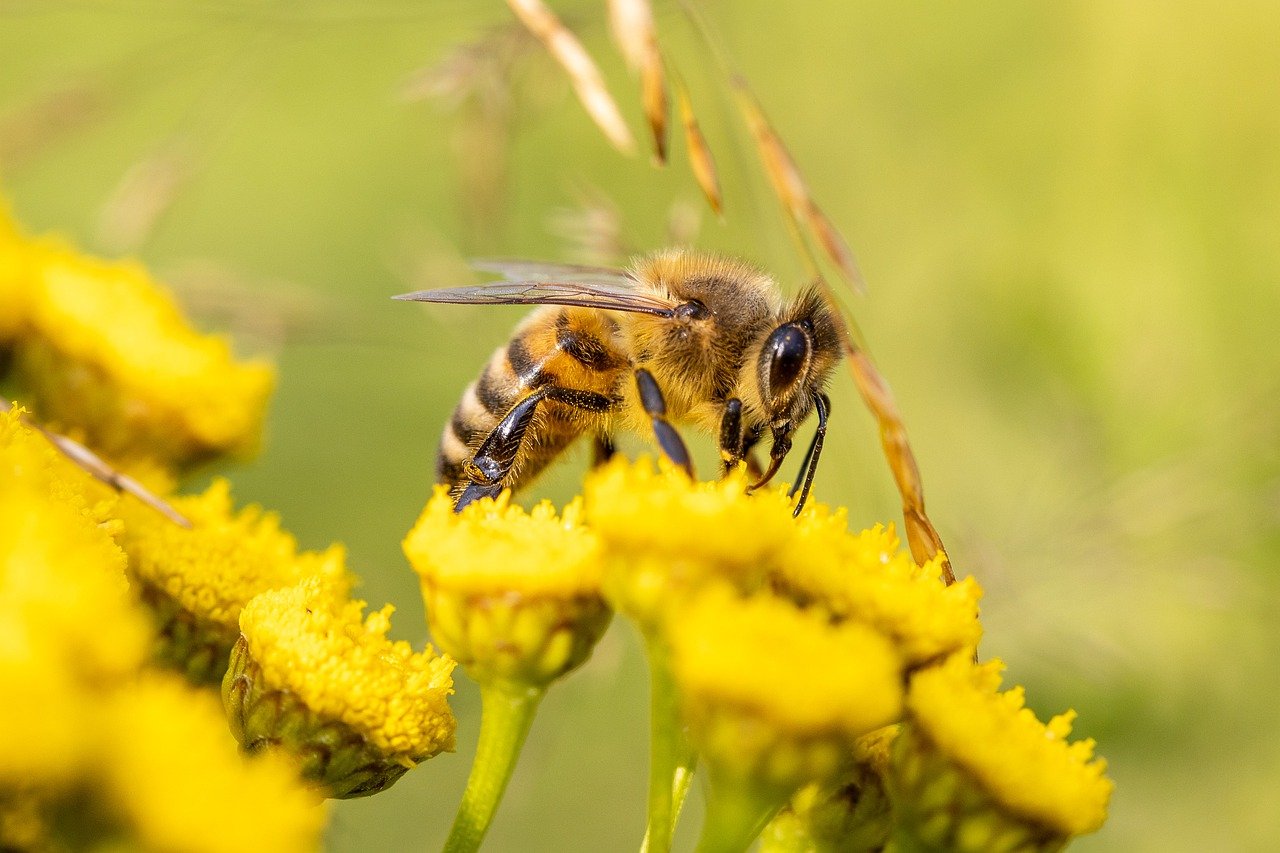- Blog
- Food & Agriculture
- Bee Action
- Why are Bees Important?
Why are Bees Important?

Donate Now!
Your contribution will benefit Friends of the Earth.
Stay Informed
Thanks for your interest in Friends of the Earth. You can find information about us and get in touch the following ways:
Save the bees is a common plea — not just from Friends of the Earth. You’ve likely seen it plastered on t-shirts, on mugs, and on images online. But why are bees so important?
The simplest answer is that bees pollinate food crops. Pollination occurs when insects — like bees and other pollinators — travel from one plant to the next, fertilizing the plant. Bees have little hairs all over their body that attract pollen. When the pollen from a flower sticks to a bee, it then travels with the bee to its next destination. When a bee lands on the next plant or flower, the pollen is distributed which results in cross-pollination. This process is what later yields fruits, vegetables, and seeds.
Bees are one of the world’s most important pollinators for food crops — each day we rely on bees and other pollinators. In fact, out of every three bites we consume relies on pollination. Yet bee populations continue to decline due to the rampant use of pesticides and other environmental factors — like climate change. We cannot stress how important bees are — not only to people, but to the overall environment.
Reasons why bees are important
A vast majority of flowering plants rely on pollinators to reproduce. As we mentioned above, fruits and vegetables all rely on pollinators transporting pollen from one flower to the next. But the value of bees goes beyond just supplying countless fruits and vegetables. Bees are also responsible for nuts, coffee, and even spices — but we can get to that shortly. Here are the top 5 reasons why bees are important, they:
- Help produce 1/3 of our food supply
- Help provide ½ of the world’s fibers, oils, and other raw materials
- Help create many medicines
- Provide food for wildlife
- Help prevent soil erosion
Why are bees important to humans
Could you imagine walking into your grocery store and not seeing the shelves lined with food? There would be few fresh fruits or vegetables. There would be no products containing honey, almonds, coffee, and chocolate! Even milk and beef would be in short supply. That’s right — pollinators like bees are responsible for plants that feed cattle — like alfalfa. Pollinators are responsible for an extensive amount of the foods that we consume. Pollinators (including moths, flies, beetles, birds, bats and more) are also part of maintaining the lungs of our planet. Pollinators help the growth of many trees as well as other plants! They are truly a keystone species – a vital part of many ecosystems.
So taking a step back to look at why bees are important to humans, the answer is very clear. Bees are a cornerstone of our food system and along with other pollinators, they help support the plants that provide the air we breathe.
Why are bees important to the environment
Nearly 90% of flowering plant species on the planet require pollinators to aid in reproduction. This not only provides a food system for wildlife, but it also creates shelter for animals.
Why are honey bees important
There are over 20,000 bee species across the globe with 4,000 of them being native to the U.S. One of the most notable bees is the honey bee.
The honeybee is responsible for nearly a third of crop pollination. But these hardworking insects produce more than that! They have six hive products — pollen, honey, beeswax, royal jelly, propolis, and venom. These are all collected and used for nutritional and medical purposes by humans.
What will happen if bees keep dying?
There is no way to overstate the importance of bees.
The wind does play a role in pollination, so we cannot overlook the fact that we would have some food to eat — just nothing that would be tasty to eat day in and day out. The wind is responsible for the pollination of corn and wheat. But the majority of our nutritious foods are bee-assisted. No almonds. No apples. No cherries. The list goes on and on. Humans would lose a healthy, vibrant diet.
Then what? It’s possible that advancements in technology would find ways to pollinate by “hand” — or by drone — we really don’t know what the future holds. But hand-pollinating is expensive. And guess where those costs would be absorbed? By consumers! IF you could get your hands on fresh fruits and vegetables — it would cost you an arm and a leg.
Bee declines warn us that we are on a toxic track. The same pesticides that are killing bees threaten many other insects, which are the basis of our ecosystems. And these toxic chemicals contaminate the air and water. They even linger in soil for months or years, harming the vital soil communities we need to grow our food. If we step up to save the bees, it means that we’ll be saving so many other creatures, too. But we know that if we keep losing our bees, we’ll be living in a world with troubles greater than paying $50 for an orange.
